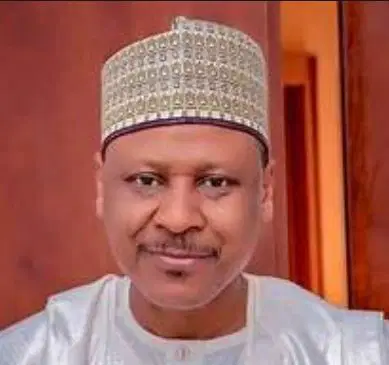Minister of Information and National Orientation, Alhaji Mohammed Idris, has stated that the recent temporary ban on raw shea exports by President Bola Tinubu is intended to position Nigeria as a global leader in the shea economy.
Idris made this remark at the 20th Northern Zonal Accountants’ Conference of the Institute of Chartered Accountants of Nigeria held in Minna, Niger, according to a statement issued on Tuesday in Abuja by his Special Assistant on Media, Malam Rabiu Ibrahim.
At the event, Idris was represented by the Director-General of the Voice of Nigeria, Mallam Jibrin Baba Ndace.
He emphasized that President Tinubu’s temporary suspension of raw shea exports “is not a mere policy experiment, but a bold and forward-looking measure aimed at unlocking the full potential of our rural economy.”
“By insisting that more of our shea be processed locally, the president is ensuring that Nigeria, which accounts for over 50 per cent of the world’s shea production, does not remain a supplier of raw materials, but becomes a global leader in high-value shea products.
“Niger State, the hub of shea production in Nigeria, stands to benefit tremendously from this transformative initiative.
“This decisive step will stimulate local investment, drive technology transfer and accelerate the development of processing capacity.
“It will also bring about the creation of quality jobs for our youth and women in rural communities, boost foreign exchange earnings and deepen Nigeria’s participation in the global value chains,” Idris added.
He further commended the National Shea Products Association of Nigeria for embracing the president’s vision and noted that the Federal Government was providing an enabling environment to make it a reality.
Idris described the shea policy as a key part of the president’s broader economic renewal agenda, which is rooted in accountability, national re-orientation, and inclusivity.
“Accountability remains the cornerstone of every thriving society and to unlock Nigeria’s future, citizens must collectively commit to doing things differently by living by the right values.
“They should also hold institutions accountable and putting Nigeria first in all their actions.”
The minister also highlighted ongoing initiatives under the Renewed Hope Agenda, which include fiscal discipline, infrastructure renewal, digital transformation, and youth empowerment.
He cited several projects, including the Lagos–Calabar Coastal superhighway, the Badagry-Sokoto superhighway, the rehabilitation of the Eastern rail corridor, and the establishment of Regional Development Commissions, as examples of equitable resource distribution guided by fairness and accountability.
“It is worthy to mention that the 1,068-kilometre Sokoto-Badagry superhighway, which is one of the four legacy projects of the president, will pass through several states, including Sokoto, Kebbi, Niger, Kwara, Ogun, Oyo, and Lagos.
“About 125 kilometres will be constructed within Niger state,” he said.
Idris also pointed to the Federal Government’s use of the Treasury Single Account and the Government Integrated Financial Management Information System as tools to strengthen controls, reduce leakages, and enforce discipline in managing national resources.
According to him, Nigeria’s improvement in the Transparency International Corruption Perceptions Index, moving from 145th in 2023 to 140th in 2024, “is not a fluke.
“It is the result of the diligent implementation of key policies that blocked leakages and promoted accountability and transparency.”
